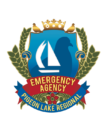Mistake 01
Buying products that require clean water to work.
One of the most common effects of a disaster zone is the inability to get clean water”.
Mistake 02
Buying products that are heavy and difficult to carry
You have to assume that you may be injured and/or may not have the strength to carry heavy objects after a disaster occur.
Mistake 03
Buying products that are scented or have strong odors
Wildlife is attracted to scent. From mosquitoes to large predators their sense of smell is one of their most effective sources for finding food.
Mistake 04
Buying products that depend on electrical power
One of the first things that fail when a disaster of any kind strikes is electrical power, buying products that require electrical power may be just a waste of money.
Mistake 05
Buying products with short shelf life
Products with less than 3 years of shelf life may be expired and unusable when you really need them.
Mistake 06
Buying only first aid products and forgetting hygiene products that are needed on a daily basis
People will use hygiene products regardless if they are injured or not, but most people buy first aid products and forget what they use on a daily basis.
Mistake 07
Buying based on how cheap the product is instead on how good it works.
Everybody wants to save money but when a disaster call you need to have the best most reliable products… your life my depend on them
Mistake 08
Buying products that can’t perform for a least 72 hours
The first 72 hours after a disaster are key, most emergency and survival support agencies and institutions can’t reach you. If you don’t have enough to survive those 72 hours a simple thing such as antibacterial protection could become a serious health issue.
Mistake 09
Taking some common things like wind, sunshine, protection from bugs and water for granted.
When disaster strikes your “normal” environment disappears and too much wind, sunshine and/or bugs can make your survival very challenging.
Mistake 10
Not knowing that after food and shelter is secured the most important issue is your hygiene
In a disaster the possibility of getting sick by contagious diseases grow exponentially with time, hygiene products are just as essential as shelter and food, make sure you have enough.
Mistake 11
Counting minimum heads
When people buy their products they should take into account that some people close to them (neighbors for example) may not have theirs or could have lost them in the disaster and then everyone would have to share…
Mistake 12
Buying products that were not designed for an emergency
People sometimes buy products based on price rather than effectiveness and at the time of a disaster they wonder why their products don’t perform to the task ahead.
Mistake 13
Consider your pets. They will have needs, shelter, food requirements as well.
Also critical is have a plan, and share it with your family – they may not be able to immediately get a hold of you.
Credit for the article by Juan J Agudelo PhD
